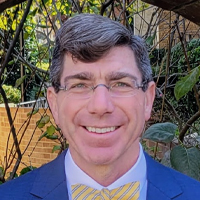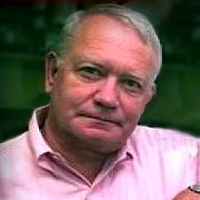
Andrew Bremer
Director, Office of Nutrition Research, National Institutes of Health
In September 2023, Lawrence A. Tabak, D.D.S., Ph.D., Acting Director of the National Institutes of Health (NIH), appointed Andrew (Drew) A. Bremer, M.D., Ph.D., M.A.S., F.A.A.P., as Director of the NIH Office of Nutrition Research (ONR), part of the Division of Program Coordination, Planning, and Strategic Initiatives in the NIH Office of the Director. His new role working collaboratively with the NIH Institutes and Centers to advance and coordinate nutrition research began on September 24, 2023.
Drew is a board-certified internist, pediatrician, and pediatric endocrinologist, and has a Ph.D. in pharmacology. Prior to his appointment as the ONR Director, Drew was the Chief of the Pediatric Growth and Nutrition Branch at the Eunice Kennedy Shriver National Institute of Child Health and Human Development (NICHD). Drew's areas of expertise include endocrine disorders, obesity, developmental origins of health and disease, and the role of nutrition in health throughout the life cycle. He earned his B.S. at Yale University, completed his M.D./Ph.D. training at Boston University, his internal medicine and pediatric residencies at the Baylor College of Medicine, his pediatric endocrinology fellowship at the University of California, San Francisco, and subsequently received an M.A.S. degree in clinical research from the University of California, Davis.
Drew joined the NIH in 2013, after holding academic positions at the University of California, Davis (2007-2010) and Vanderbilt University (2010-2013). He is currently a co-chair on the National Collaborative on Childhood Obesity Research Steering Committee, a member of the Senior Leadership Group of the NIH Obesity Research Task Force, NIH liaison to the American Academy of Pediatrics’ Committee on Nutrition and Section on Obesity, and a member of the NIH Climate Change and Health Initiative’s Steering Committee. As a member of the ONR Senior Leadership Group (SLG), he helped develop the 2020-2030 Strategic Plan for NIH Nutrition Research. Drew has received numerous honors, including election to the Society for Pediatric Research, multiple NIH Director’s Awards, and several teaching awards.
Drew is committed to the mission of ONR and wants all stakeholders to know they have an open invitation to reach out to him.














